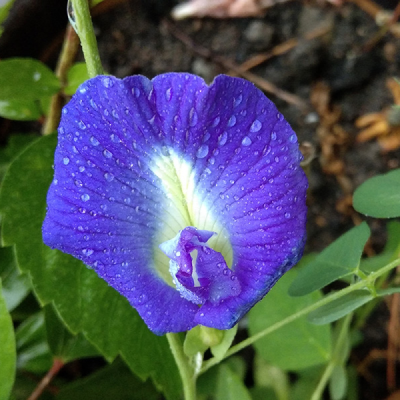Stress is the body’s natural response to any demand, threat, or change that requires attention or action. It triggers a “fight or flight” reaction, releasing hormones like cortisol and adrenaline to help us handle challenges. While short-term stress can be beneficial, chronic or excessive stress can harm both the body and mind.
Types of Stress
Acute Stress
- Short-term and temporary, such as preparing for an exam or a sudden event.
- Usually subsides once the situation is resolved.
Chronic Stress
- Long-term stress due to ongoing problems like financial difficulties or a demanding job.
- Can severely affect physical and mental health.
Episodic Acute Stress
- Frequent episodes of acute stress due to a hectic lifestyle or constant worry.
Causes of Stress
External Causes
- Work pressure or deadlines.
- Relationship conflicts.
- Financial instability.
- Traumatic events.
Internal Causes
- Negative self-talk.
- Unrealistic expectations.
- Fear or anxiety about the future.
- Lack of adaptability to change.
Signs and Symptoms of Stress
Physical Symptoms
- Headaches or migraines.
- Muscle tension, especially in the neck and shoulders.
- Fatigue or low energy.
- Sleep disturbances (insomnia or oversleeping).
- Increased heart rate or palpitations.
- Digestive issues like bloating, constipation, or diarrhoea.
Mental and Emotional Symptoms
- Anxiety or restlessness.
- Irritability or mood swings.
- Difficulty concentrating or forgetfulness.
- Feelings of overwhelm or helplessness.
Behavioral Symptoms
- Overeating or undereating.
- Social withdrawal.
- Reliance on substances like alcohol, tobacco, or caffeine.
- Procrastination or decreased productivity.
Adverse Effects of Chronic Stress on Health
On the Body
Cardiovascular System:
- High blood pressure, heart disease, and increased risk of stroke.
Digestive System:
- Acid reflux, ulcers, or irritable bowel syndrome (IBS).
Immune System:
- Weak immunity leading to frequent infections.
Endocrine System:
- Imbalanced cortisol levels disrupt hormonal functions, affecting metabolism and weight.
Musculoskeletal System:
- Chronic muscle tension and pain.
On the Mind
Mental Health Issues:
- Anxiety disorders, depression, and burnout.
Cognitive Decline:
- Poor memory, difficulty focusing, and decision-making problems.
Ayurvedic Perspective on Stress
In Ayurveda, stress is viewed as a disturbance in the Manas (mind) and Sharira (body) due to an imbalance in the Trigunas (three qualities of the mind) and the Doshas (Vata, Pitta, and Kapha).
Dosha Imbalance
- Vata Imbalance: Causes restlessness, anxiety, and overthinking.
- Pitta Imbalance: Leads to anger, irritability, and frustration.
- Kapha Imbalance: Causes lethargy, sadness, and withdrawal.
Manasika Doshas
Rajas: Agitati ther affecting physical and mental health.
Ayurvedic Treatment for Stress
Dietary Recommendations (Ahara)
- Eat fresh, warm, and sattvic (pure) foods like fruits, vegetables, whole grains, and dairy.
- Avoid stimulants like caffeine, alcohol, and processed foods.
- On, over activity, and inability to relax.
- Tamas: Negativity, dullness, and lack of motivation.
Stress disrupts Ojas (vital energy), weakens Agni (digestive fire), and increases the build-up of Ama (toxins), further affecting physical and mental health.
Lifestyle Adjustments (Vihara)
- Regular Routine: Follow a consistent daily schedule to balance Vata.
- Adequate Sleep: Ensure 7-8 hours of restful sleep by going to bed early.
- Stress-Relieving Activities: Practice hobbies, spend time in nature, and maintain a positive social circle.
Panchakarma Therapies
- Abhyanga (Oil Massage): Using warm herbal oils like sesame or Brahmi oil to calm the nervous system.
- Shirodhara: Pouring warm oil on the forehead to reduce mental stress.
- Nasya Karma: Medicated nasal drops (e.g., Anu Taila) to clear mental blockages.
Yoga Asanas
- Balasana (Child’s Pose): Relieves tension and calms the mind.
- Shavasana (Corpse Pose): Encourages deep relaxation.
Pranayama
- Nadi Shodhana (Alternate Nostril Breathing): Balances the doshas.
- Bhramari (Bee Breathing): Reduces anxiety and promotes mindfulness.
Meditation and Mindfulness
- Practice daily meditation to calm the mind and increase self-awareness.
- Chanting mantras like “Om” or “Gayatri Mantra” to enhance mental peace.
Stress-reducing herbs like
Ashwagandha
Calms the mind and reduces cortisol levels.
Brahmi
Enhances memory and mental clarity.
Shankhpushpi
Relieves anxiety and promotes relaxation.
Tulsi
Balances stress hormones and strengthens immunity.
Drink herbal teas with chamomile, licorice, or fennel to calm the mind.
Herbal Formulations
- Chyawanprash: Enhances Ojas and immunity.
- Medhya Rasayana: A group of herbs (e.g., Brahmi, Ashwagandha) for mental rejuvenation.







